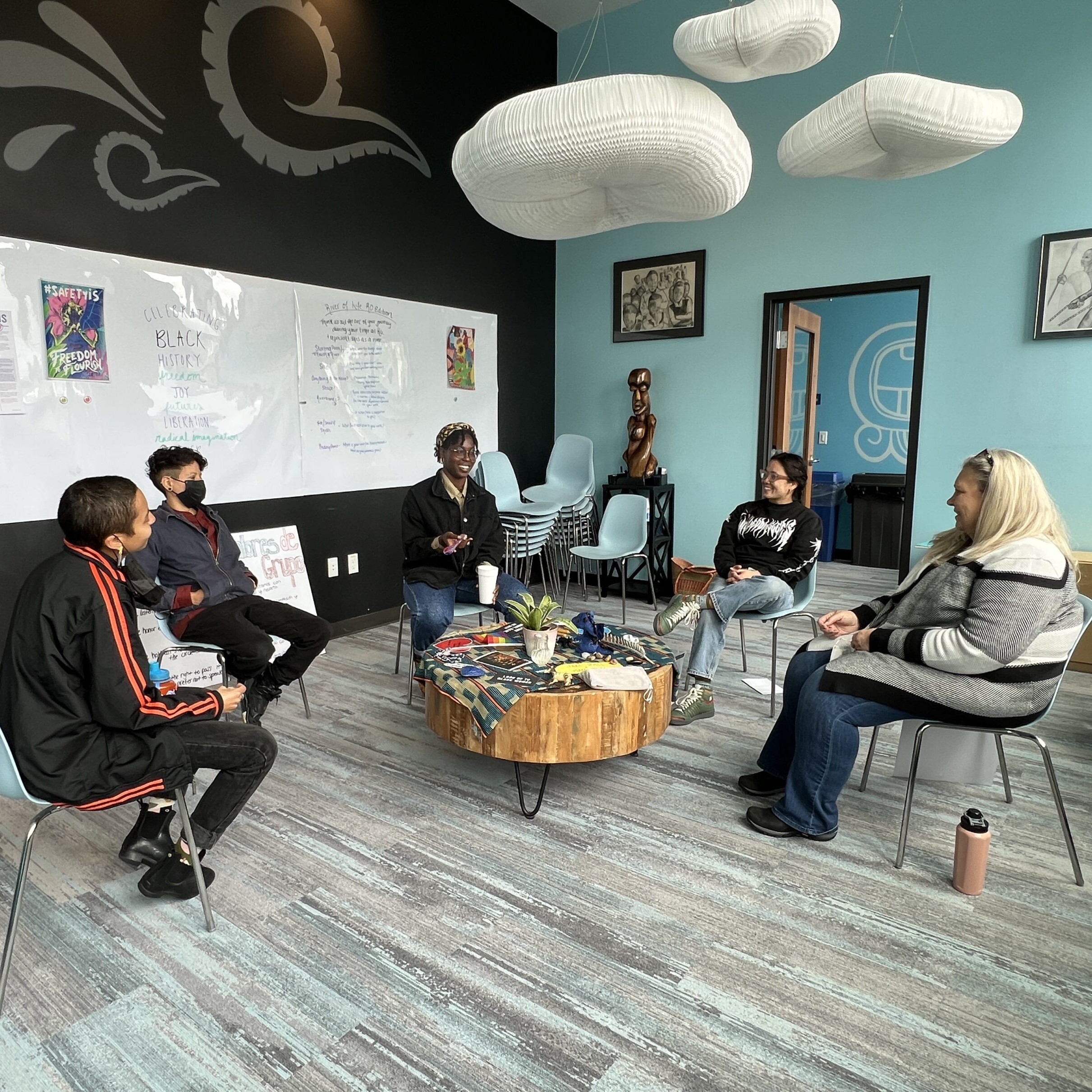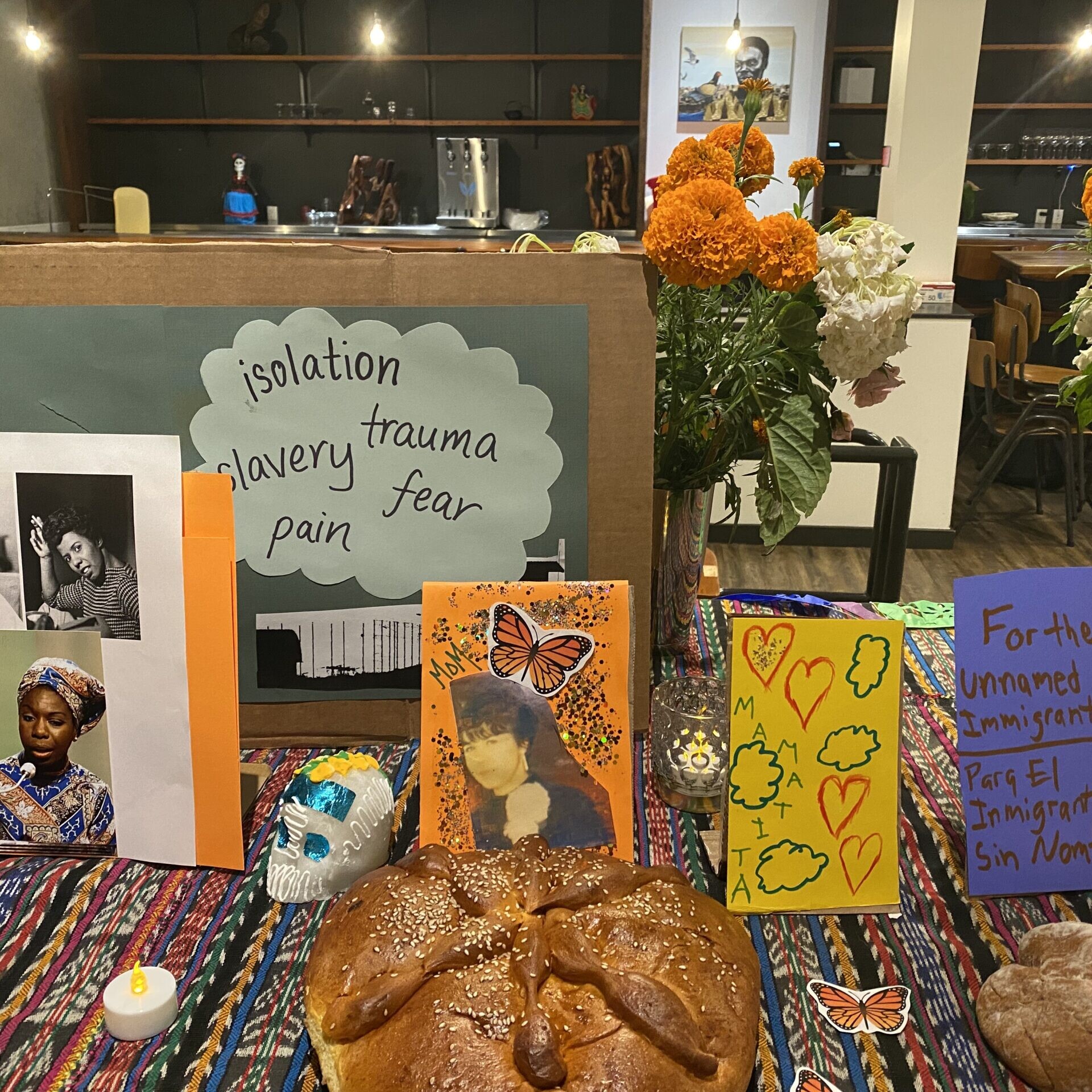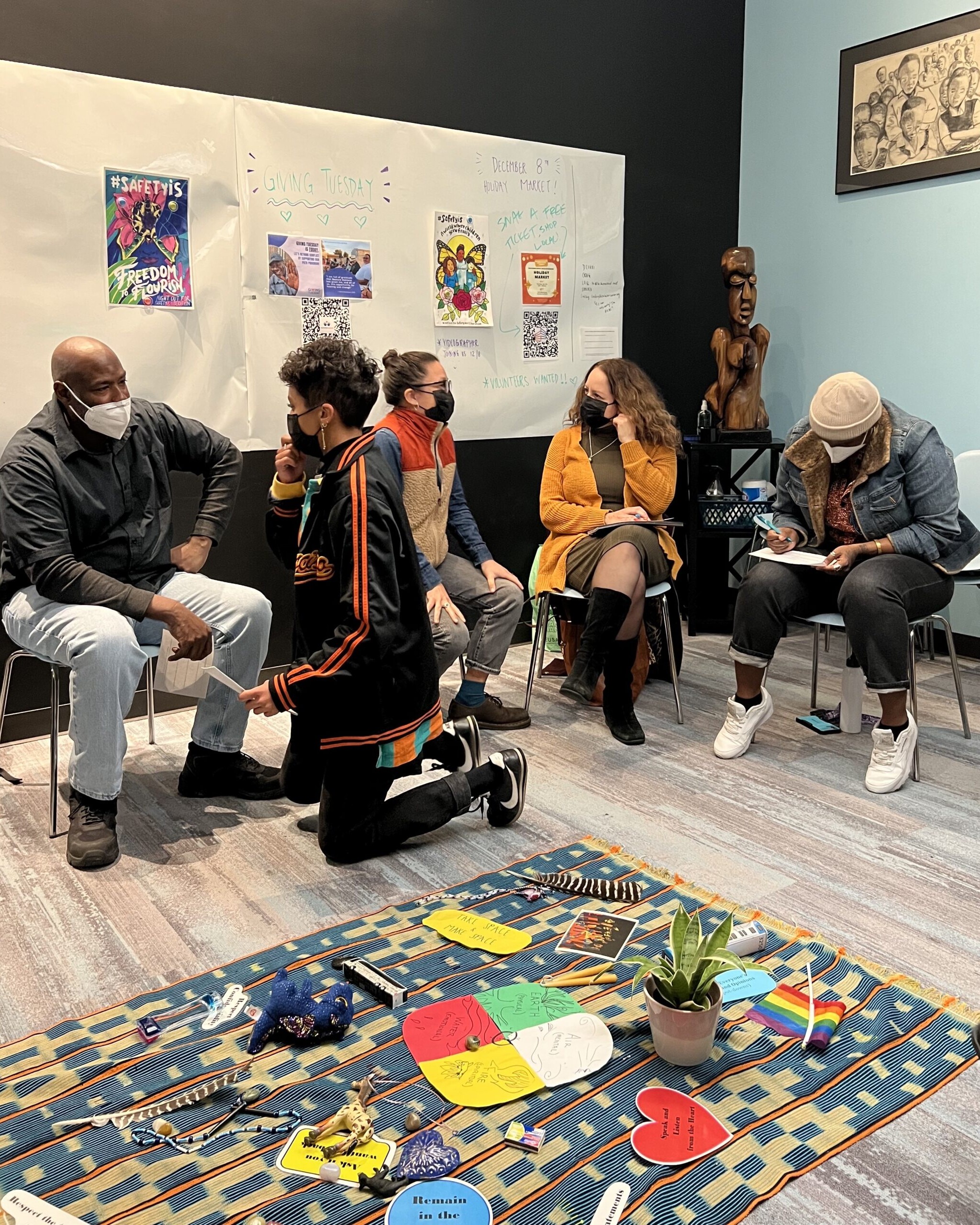
Practicing Accountability, Transformation, & Healing
PATH Program
PATH helps community membersnavigate conflict and heal fromharm, together.
We use principles of restorative justice and trauma-informed care to resource and heal our communities, rather than relying on police, punishment, and other forms of violence.
We started the PATH Program in response to requests from Oakland residents seeking alternative responses to harm and conflict.


The PATH Program might be the right fit for you if:
- You need help navigating or de-escalating a conflict with someone in your community – a family member, neighbor, community group or team member, partner or loved one, etc.
- You have experienced violence or harm, and you want to address it and make changes with the other people involved.
- You are experiencing a harmful or unhealthy relationship and you need help making changes with the other people involved.
- You have harmed someone in your community and you want to make it right.
- If you are a BIPOC, working class Oakland resident. (We prioritize working with Black and Brown community members).
If you aren’t sure whether the PATH Program is a good fit, please feel free to submit an intake form, email Kari Malkki, or call Kari at (341)420-0953 x 953.
We’re happy to talk with you individually and connect you to resources if we can’t support you directly.
FAQs
After you reach out to PATH, you will receive a response within 1 week. PATH will schedule an initial conversation to understand your story, your goals for a PATH process, and who else is involved in the conflict or harm.
After speaking with you, PATH will connect with the other individuals involved. PATH facilitators have multiple one-on-one conversations with all the individuals involved who wish to participate. These conversations are opportunities for people who experienced harm to talk about what happened, identify their needs, and determine what can be done to meet those needs and support their healing. Similarly, PATH facilitators meet with the person/people who caused harm, to understand their stories and support their accountability and healing.
If the conditions allow for all impacted individuals to come together (i.e. everyone is safe, able, and willing to come together), PATH facilitators convene and hold space for dialogue between all parties. These conversations are held in a restorative justice circle format. After the restorative circle, PATH facilitators follow up with participants and, as needed, may connect them to additional resources or supports.
After you reach out to PATH (through the intake form, or by emailing kari@restoreoakland.org or calling (341) 420-0953 x 953, you will receive a response within 1 week. PATH will schedule an initial conversation to understand your needs and your goals for a PATH process. This will occur as soon as possible, based on you and the PATH team’s schedules.
If your case is urgent, please let us know. We will connect with you as promptly as possible, but we cannot guarantee a more rapid response than within 1 week.
Each case is different: PATH processes may take several weeks or several months, depending on the needs and capacities of the individuals involved. PATH facilitators are committed to moving at the speed of trust and ensuring the meaningful involvement of all individuals involved.
- Cases involving current and significant levels or threats of violent behavior.
- Cases in which the other parties involved in the conflict or harm are not willing to engage or cannot be contacted. This includes cases in which there is an active restraining order between the parties. (We will not coerce or force other people to engage in a PATH process; we believe healing and accountability must be consensual.)
- Child support or spousal support cases, divorce paperwork, and other cases that require legal services. (We are not lawyers.)
- Conflicts or harms that are primarily caused by institutional/organizational issues, rather than on the needs or actions of individuals (i.e. harm occurring in a nonprofit due to an all white leadership team; unhealthy power dynamics in the workplace due to hierarchical structures).
PATH facilitators are restorative and transformative justice practitioners, community organizers, circle-keepers, and care-workers with multiple identities and lived experiences. PATH facilitators work with Restore Oakland’s Healing Justice team and share a commitment to liberation, self-determination, and healing for Black and Brown communities and survivors of violence (including state violence and incarceration).
Are YOU a restorative/transformative justice practitioner, circle-keeper, or facilitator who shares Restore Oakland’s commitments and values? If you are interested in becoming a PATH facilitator, please email kari@restoreoakland.org
No. Each PATH process is supported by two facilitators, and we will take your preferences, needs, and availability/schedule into account when we match you with PATH facilitators. If you prefer to work with a facilitator who shares some of your identities or experiences (i.e. a Black person, a survivor, a queer/trans person), please let us know during our initial conversation.
If you know one of the PATH facilitators matched to your case and feel it will negatively impact your process, we can match you with another facilitator. This may impact the timeline of the process, so we will discuss and problem-solve with you. If you know one of PATH facilitators matched to your case but both of you feel comfortable working together, we are happy to continue the process.
- PATH processes involve multiple meetings – which can be held on Zoom, over the phone, or in person – and an in-person restorative justice circle.
- In-person meetings and circle processes are held at Restore Oakland (1419 34th Ave, Oakland 94601) in our Peace Room – unless the people involved in the PATH process prefer meeting at another location. We do our best to make PATH processes accessible to residents who cannot meet at Restore Oakland, so please let us know if this is the case.
Our priority is to ensure that everyone in our community has access to healing and support! If you are a working class or low-income community member, access to the PATH Program is free. For community members and organizations/groups that are not low-income, we offer PATH processes on a sliding scale in order to redistribute resources and support our community members as equitably as possible.
PATH facilitators typically spend around 25 hours on each PATH process, and Restore Oakland is committed to paying facilitators a wage that honors their labor and is responsive to Oakland’s rising cost of living. This means that most PATH processes cost about $1,875 to fund from start to finish.
By paying for these services at the higher end of the sliding scale, you make it possible for Restore Oakland to offer PATH processes at low/no cost to community members with limited access to resources.
Sliding Scale Rates
All individuals, or organizations with budgets up to $600,000
Solidarity
PATH Process(20-25 hrs)
0 to $750
Sliding Scale Rates
Organizations with budgets from
$600K – $1.2M
Sustain
PATH Process(20-25 hrs)
$1,000
Sliding Scale Rates
Organizations with budgets from
$1.2M – $4M
Full Cost
PATH Process(20-25 hrs)
$1,875
Sliding Scale Rates
Organizations with budgets over
$4M
Redistribution
PATH Process(20-25 hrs)
$2,500
If you need support from the PATH Program and do not live in Alameda County, please indicate this in your intake form. In some cases, we are open to supporting Bay Area community members who do not live in Alameda County.
If the other individual(s) will not or cannot participate in the PATH process, PATH may not be the most appropriate resource for you. Ideally, a PATH process will facilitate accountability, transformation, and healing for multiple parties involved in a conflict or harm. If you are uncertain about whether the other individual(s) involved are willing to participate, please let us know; PATH facilitators may be able to provide them with additional information and/or explore options that work for all those involved. (Individuals are often more willing to participate after they have the opportunity to discuss the process with a PATH facilitator.)
